By fusing personal tales with generational knowledge, Better Call Daddy has established a unique brand in the podcasting industry and produced dialogues that are remarkably transparent and refreshingly uncensored. The host, Reena Friedman Watts, approaches each guest with a curiosity honed by her experience in television, and her father, Wayne, contributes a grounded viewpoint, turning personal stories into more general life lessons. Because it combines two storytelling traditions—intimate narrative and advisory reflection—this structure is especially novel.
An episode with Bob Sager showed how, with the right support, creativity can transform from exploratory play to highly effective problem-solving techniques in the workplace. In addition to being entertaining, Bob’s talk about “bad ideas” exercises and his next 24-hour creativity stream was incredibly successful at showing how imagination can be used in useful ways. Wayne’s subsequent commentary, which transformed abstract concepts into practical guidance, emphasized the significance of incorporating creativity into everyday decisions.
Podcast Information Table
| Podcast Title | Better Call Daddy |
|---|---|
| Host | Reena Friedman Watts |
| Co-Host | Wayne Friedman (Father) |
| Years Active | 2020 – Present |
| Episodes Released | 447+ |
| Genre | Culture, Society, Storytelling |
| Format | Guest interview followed by “Daddy’s advice” |
| Website | https://bettercalldaddy.com |
| Platforms | Spotify, Apple Podcasts, YouTube, Global Player |
| Tagline | Where wisdom and heart meet |
Persistence was a recurrent theme in another Freddy Cruz episode. Freddy, a former radio veteran, openly discussed how detours frequently lead us to better opportunities—a sentiment remarkably similar to that of innumerable entrepreneurs who found success by chance rather than choice. Because it reflected the resiliency that regular families exhibit on a daily basis, his story of constructing a podcast studio following years of late-night shifts and losses struck a chord with listeners. Wayne’s observations supported the notion that perseverance is especially helpful when life deviates from expectations, and Reena skillfully led the story with empathy.
The discussion with Yehuda Remer, popularly known as the Pew Pew Jew, took a more nuanced turn, fusing political advocacy with cultural identity. Yehuda’s open thoughts on bringing up responsible kids while handling a contentious issue demonstrated how intensely private decisions affect public discussions. His tone, which was simultaneously serious and humorous, made it clear to the audience that representation was difficult. Decades of business experience significantly enhanced Wayne’s reflection, assisting in bringing the discussion back to the pragmatics of managing one’s mission and reputation.
A deeper level of significance was provided by episodes such as Alison Bucklin’s kidney donation story, which illustrated the revolutionary influence of personal decisions on communal life. Themes from Alison’s journey included spiritual rebirth, medical resiliency, and the strength of selfless giving. Wayne’s firm but gentle insights framed her generosity as part of a legacy of kindness, while Reena’s deft questioning allowed the emotional depth to emerge without being exploited. This combination served as a reminder to the audience that courage frequently lurks in everyday homes, just waiting to be expressed.
Because it places regular people alongside cultural discussions that are typically dominated by celebrities, Better Call Daddy succeeds. Professional media and personal experience are now much closer thanks to this strategy. It reminds me of how Billie Eilish and her brother Finneas revolutionized music by making music out of their bedrooms—evidence that genuine voices can be heard around the world without the help of conventional gatekeepers if they are supported.
The podcast is frequently praised by listeners for being both entertaining and very effective at imparting transferable knowledge. Resilience and caution can be applied to parenting, career navigation, or personal safety, as demonstrated by former FBI agent Scott Payne’s thoughts on infiltrating extremist groups. As a format, that type of narrative shift—from family conversation to national security—is incredibly resilient, guaranteeing that the program never feels monotonous.
Better Call Daddy’s emotional architecture sets it apart from its competitors. Every story starts with a guest’s truth, which is frequently unvarnished and occasionally contentious, before delving into universal themes. Reena makes sure the episodes feel complete by letting her father provide commentary, giving the impression that viewers are not only hearing a confession but are also given advice afterwards. With the prevalence of single-voice storytelling in podcasts, this rhythm is especially inventive.
The show’s reach and production quality have significantly increased over the last five years, expanding to YouTube, Instagram snippets, and live events. Because of its versatility, it has been able to keep up with the changing preferences of its audience. Similar to how Joe Rogan reimagined his platform by experimenting with different formats, Reena has demonstrated that perseverance and trial and error can guarantee longevity in a competitive field.
The show has a subtle but compelling social impact. It encourages families to have intergenerational conversations again, even about sensitive subjects like grief, cult survival, and absent fathers. Reena and Wayne demonstrate how shared dialogue can heal and how silence can be broken by modeling those conversations. The way families learn from one another may be drastically changed in the years to come if more podcasts adopt this kind of intergenerational candor, transforming personal knowledge into public legacy.
